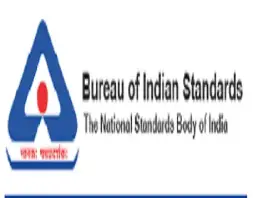By Rupin Chopra and Apalka Bareja
Recently, the authorities seized over 18,000 toys from 25 retail stores. The consumer protection regulator also issued notices to online portals like Amazon, Flipkart and Snapdeal for the alleged sale of toys without the BIS quality mark and appropriate actions/penalties were to be taken for not following the procedure under the act[1].
The government pointed out the following issues:
- As many as 30% of plastic toys failed to meet the safety standards of admissible levels of phthalates, heavy metals etc.
- 80% of plastic toys failed on mechanical and physical safety properties.
- 45% soft toys failed on the admissible levels of phthalates.
- In case of electric toys, failure was 75%.
- Overall, only 33.10% toys passed all tests while failure rate was 66.90%[2] .
WHO REGULATES TOYS IN INDIA
In India, Bureau of Indian Standards (BIS) is a National Standard Body of India established under Bureau of Indian Standards Act, 2016. They have the power to oversee the quality, safety of the goods and award them with the ISI mark or Quality Certification. Additionally, they have the power to issue notices and penalties to manufacturers and sellers for not following the procedure under the act.
IS BIS CERTIFICATION MANDATORY FOR TOYS?
Toys are made from non-consumable items like plastics and polymer. The toys are risky for children if they consume it. The rules are applicable regardless if it is made domestically or imported. Thus, BIS certification is necessary/mandatory for all the toys for children under the age of 14.[3]
NEW RULES
- Directorate General of Foreign Trade (DGFT) vide Notification No.33/2015-2020, dated December 02, 2019 mandated sample testing of each import consignment and no permission for sale unless the quality testing is successful. In case of failure, the consignment is either sent back or destroyed at the cost of the importer.
- A Quality Control Order for Toys was issued on February 25, 2020, through which toys have been brought under compulsory certification from Bureau of Indian Standards (BIS) with effect from January 1, 2021. As per the Order, every toy in the market must conform to the requirements of relevant Indian Standard and bear the Standard Mark under a license from BIS as per Scheme-I of BIS (Conformity Assessment) Regulations, 2018. This order is applicable to domestic manufacturers as well as foreign manufacturers who intend to export their toys to India.
- Different standards were formulated including safety aspects related to physical and mechanical properties of toys like sharp edges, flammability of toxic elements etc.
ADDITIONAL PENALTIES
- Failure for not bearing the ISIS mark (through testing) and selling them will result into criminal liability, including imprisonment for a term which may extend to 1 year or minimum fine of Rs. 1 Lakh which may extend to 5 times the value of goods or articles produced or sold.[4]
- Manufacturing, selling, keeping for sale of toy without the mandatory ISI mark will result in imprisonment upto 2 years or fine upto 2 lakh rupees for first contravention[5]
GOVERNMENT PLANS FOR IMPORT/EXPORT OF TOYS
In 2020, the government had increased the basic customs duty on toys to 60% in comparison to 20% with the motive to reduce the imports. Further, it also made the sample testing of the each import consignment toys/goods mandatory in order to prevent the toys from entering the market or a country.[6]
With regards to this, as per the discussion held in Lok Sabha, the export of toys got increased to $326.63 million in FY21-22 in comparison to $96.17 million in FY14-15 whereas the imports got dropped approximately by 67% to $109.72 million in FY21-22 in comparison to $332.52 million in FY14-15.[7]
CONCLUSION
Taking into consideration the recent events where notices were issued to online shopping websites and toys were seized from the retail stores imposing strict penalties issued by the BIS. It is evidently clear for toy importers and manufacturers to obtain BIS certificate because it is the duty of the manufacturer and the seller to ensure the safety standards of their consumers. Also, the Obtainment of certificate will help the manufacturer and the importer to easily manufacture, import or sell their products in Indian market which can increase their profits and goodwill in the market or the country.
Rahul Verma, Intern at S.S. Rana & Co. has assisted in the research of this article.
[1] https://varindia.com/news/center-seized-over-18000-toys-from-panindia-retail-stores-over-bis-quality-mark
[2] Q&A Session, https://pqals.nic.in/annex/1710/AS114.pdf, 16-01-2023
[3] Quality Control Order, https://dpiit.gov.in/sites/default/files/qualityControlOrder_Toys_27February2020.pdf,
17-01-2023
[4] Section 29(2) of the BIS Act, 2016
[5] Section 29(3) of the BIS Act, 2016
[6] Q&A Session, https://dpiit.gov.in/sites/default/files/ru1978.pdf, 16-01-2023
[7] Q&A Session https://pqals.nic.in/annex/1710/AS114.pdf,
Related Posts


